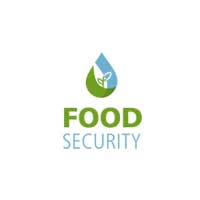1st Cologne Conference on Food for Future
05 - 07 September 2018
Rautenstrauch-Joest-Museum, Cologne
Achieving global food security is one of the most pressing issues of our times. Scientists took the opportunity to discuss possibilities to tackle this challenge at the ‘1st Cologne Conference on Food for Future’, which the Competence Area ‘Food Security’ at the University of Cologne hosted from 5 to 7 September in Cologne. The focus of the programme was on ‘Orphan Crops’, ‘Functional Food’ and ‘Innovative Food Sources and Production Systems’. In addition to promoting interdisciplinary discussion, the organizers sought international exchange, especially with scientists from emerging countries. That is why the Competence Area ‘Food Security’ awarded six travel grants of up to 1.500 euros to early-career researchers from developing countries. (photo)
Orphan Crops, as the name suggests, do not receive much global attention and are therefore less well known. This class includes finger millet, dwarf millet Tef, yam root and cassava. They are considered nutritious and resilient to environmental influences. A further advantage is that many local smallholders cultivate so-called Orphan Crops. Therefore, they are widely accepted by farmers. Orphan Crops are not traded internationally, and in terms of the applied cultivation methods, they lag far behind the modern technologies used for maize, wheat or rice. As a result, Orphan Crops offer the opportunity to feed many people, because there is still enormous potential in terms of crop yield, disease resistance or resilience to drought or heat. The conference discussed the many possibilities of exploiting this potential. The speakers from African countries in particular were able to report impressively of their local research.
‘Functional food’ refers to foods which, in addition to their function as food, also have health-promoting effects. For example, a lecture in the Functional Food Session highlighted the ‘purple tomato’, which has a positive effect on health due to its increased anthocyanin level.
On the third day of the conference, food of the future was discussed in the session ‘Innovative Food Sources and Production Systems’. The increasing demand for food such as cereals and meat requires alternatives. Insects such as crickets, grasshoppers or mealworms are eaten in many countries. They are regarded as an alternative to meat and are a good source of protein. Algae as a nutrient-rich food of the future was also discussed.
Two public events met with great interest not only among scientists, but also among the interested public. Dr Simone Dohle from the University of Cologne gave a lecture on ‘Why we eat what we eat. The psychology of eating’, offering an overview of the various factors that play a role in food selection. In this context, Dr Dohle particularly emphasized the importance of interdisciplinary research. In the public panel discussion ‘Food security and the future of plant breeding – Can we ensure global food security on the basis of the current state of plant sciences?’, the importance of new technologies was discussed. In addition to plant scientists, ethicists like Professor Dieter Birnbacher and a representative of the non-governmental organization Misereor, Dr. Sabine Dorlöchter-Sulser, contributed to the discussion. In order to guarantee food security, new technologies are needed that have to be adapted to local conditions. It is fundamental to involve local smallholders in the process.
The next ‘Cologne Conference on Food for Future’ will be organized as a ‘Travelling Conference’ in cooperation with the UoC’s international Liaison Offices.
Conference 2018 Website
We cordially invite you to the “1st Cologne Conference on Food for Future” from 05.–07. September 2018 in Cologne. The general objective of the conference is to bring together scientists from academia and industry to discuss the future of food production, development of new products and processes and new research opportunities to ensure global food and nutrition security.
The conference focuses on Orphan Crops, Functional Food and Innovative Food Sources & Production Systems. We aim to provide an opportunity for a lively exchange among all stakeholders in the Food Security field.
Two public events are part of the Conference:
- Lecture by Simone Dohle: "Why Do We Eat What We Eat? The Psychology of Eating"
- Plenary Discussion: Food Security and Future of Plant Breeding - Are we able to ensure global food security based on the current status of plant sciences?
The public events are free of charge and open to all.
The conference is organised by the Competence Area “Food Security”, which is part of the institutional strategy of the University of Cologne. The main mission of the Competence Area is to embed the efforts of the Cluster of Excellence on Plant Sciences, CEPLAS, to improve plant productivity within a broader societal context and to promote efficient knowledge transfer between relevant disciplines. Additionally, the Competence Area contributes to training and teaching to raise awareness of the great challenges of food and nutrition security.
Organising Committee
- Cordula Jörgens
Coordinator Competence Area Food Security, University of Cologne - Stanislav Kopriva
Botanical Institute, University of Cologne - Andreas P.M. Weber
Institute of Plant Biochemistry, Heinrich Heine University Düsseldorf - Lars Niehaus
Department of Philosophy, University of Cologne - Richard Jacoby
Botanical Institute, University of Cologne - Timothy Jobe
Botanical Institute, University of Cologne - Melanie Sapp
Institute of Population Genetics, Heinrich Heine University Düsseldorf - Antonella Succurro
Botanical Institute, University of Cologne
Administrative Support
- Elke Henn
Botanical Institute, University of Cologne
